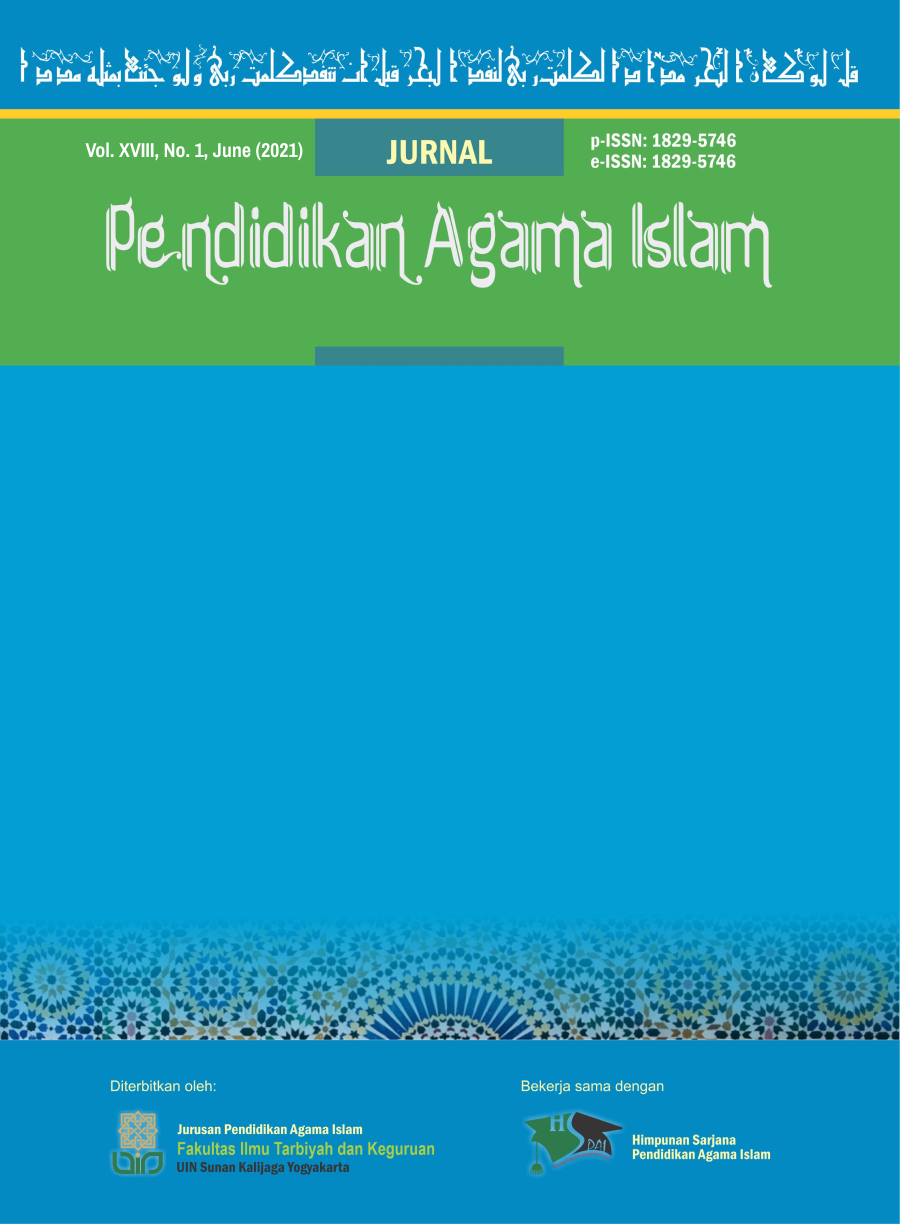Science-Learning Strengthening Model in Islamic Educational Institution: Case Study at MAN 1 Yogyakarta
##plugins.themes.bootstrap3.article.main##
Abstract
Advances in science and technology continue to develop and have a broad impact on various aspects of human life, including in the world of education. In order for students to be able to compete in the global world, educational institutions need to strengthen science learning to students. This study aims to explore the advantages of the science-learning strengthening model in Madrasa Aliyah in terms of context, input, process, and output aspects. This study uses a qualitative approach with a qualitative descriptive method. The results of this study indicate that in terms of context, the program for strengthening science learning already exists in the vision and mission of the madrasa, which is to have the advantage of science and technology, which is followed up by madrasa policy to develop KTSP Research and science for local contents and extracurricular activities. From the input side, all were fulfilled except for the laboratory staff who were temporarily carried out by the KIR Trustees. From the process side, science learning strengthening has been carried out well and the output is also quite satisfiying. This can be seen from the score of the National Examination and the number of student achievements, especially in the fields of science and research both in the national and international levels.
Keywords:
Downloads
##plugins.themes.bootstrap3.article.details##
Copyright

This work is licensed under a Creative Commons Attribution-ShareAlike 4.0 International License.
Copyright Notice
Authors who publish with this journal agree to the following terms:
- Authors retain copyright and grant the journal right of first publication with the work simultaneously licensed under a Creative Commons Attribution License that allows others to share the work with an acknowledgement of the work's authorship and initial publication in this journal.
- Authors are able to enter into separate, additional contractual arrangements for the non-exclusive distribution of the journal's published version of the work (e.g., post it to an institutional repository or publish it in a book), with an acknowledgement of its initial publication in this journal.
- Authors are permitted and encouraged to post their work online (e.g., in institutional repositories or on their website) prior to and during the submission process, as it can lead to productive exchanges, as well as earlier and greater citation of published work.
References
(biem.co), B. (2019). Kemdikbud Rilis Daftar 100 SMA Negeri dan Swasta Terbaik di Indonesia. Jakarta. Retrieved from https://www.biem.co/read/2019/06/20/42135/kemdikbud-rilis- daftar-100-sma-negeri-dan-swasta-terbaik-di-indonesia/
Darmawan, B. (2014). Manajemen Sarana Dan Prasarana Dalam Meningkatkan Kualitas Pendidikan. Pelopor Pendidikan, 6, 94–102.
Ghony, M. D., & Almanshur, F. (2016). Metode Penelitian Kualitatif. Yogyakarta: Ar-Ruz Media.
Harususilo, Y. E. (2019a). Skor PISA Terbaru Indonesia, Ini 5 PR Besar Pendidikan pada Era Nadiem Makarim.
Harususilo, Y. E. (2019b, February 9). Kompetisi Sains Madrasa, Membongkar Stigma “Sekolahan Kelas Dua.” Kompas.
Islam, D. P. (2019). Integrasikan Sains dan Islam Untuk Madrasa Hebat. Jakarta. Retrieved from http://www.pendis.kemenag.go.id/index.php?a=detil&id=10575#.YG52ST8xU2w
Milyasari. (2013). Problematika Pembelajaran Sains Ditinjau Dari Aspek Guru. Al Ta’lim, 20, 346–356. https://doi.org/https://doi.org/10.15548/jt.v20i1.30
Mustari, M. (2014). Manajemen Pendidikan. Jakarta: Rajawali Pers.
Nurul, Z. (2015). Metodologi Penelitian Sosial dan Pendidikan. Jakarta: PT. Bumi AKsara.
Patta, B. (2006). Penilaian Ketrampilan Proses dan Sikap Ilmiah dalam Pembelajaran Sains SD. Jakarta: Depdiknas.
Rustaman, N. (2001). Ilmu dan Aplikasi Pendidikan. Bandung: Inperial Bakti Utama.
Sardiman, A. . (2010). Interaksi dan Motivasi Belajar Mengajar. Jakarta: Rajawali Pers.
Sari, M. (2012). Usaha Mengatasi Problematika Pendidikan Sains Disekolah Dan Perguruan Tinggi. Al Ta’lim, 19, 74–86. https://doi.org/https://doi.org/10.15548/jt.v19i1.9
Sugiana, A. (2019). Pengembangan Kurikulum Pendidikan Agama Islam Dan Implementasinya Di MTs Nurul Ummah Yogyakarta. Jurnal Pendidikan Agama Islam, XVI(1), 161–162. https://doi.org/10.14421/jpai.jpai.2019
Sukmadinata. (2010). Metode penenelitian pendidikan. Bandung: Remaja Rosdakarya.
Toharudin, & Dkk. (2011). Membangun Literasi Sains Peserta Didik. Bandung: Humaniora.
Trianto. (2011). Model Pembelajaran Terpadu Konsep Strategi Dan Implementasinya Dalam Kurikulum Tingkat Satuan Pendidikan. Jakarta: Bumi Aksara.
Wijayanto, N., & Wibowo. (2006). Potret Pembelajaran Sains Di SMP Dan SMA. Jurnal Pendidikan Fisika Indonesia, 4. https://doi.org/10.15294/jpfi.v4i2.170
Zakky. (2021). Pengertian Sains : Arti, Definisi, Tujuan, dan Hakikat Ilmu Sains.
466
Views
421
Downloads





